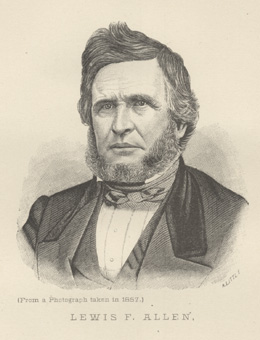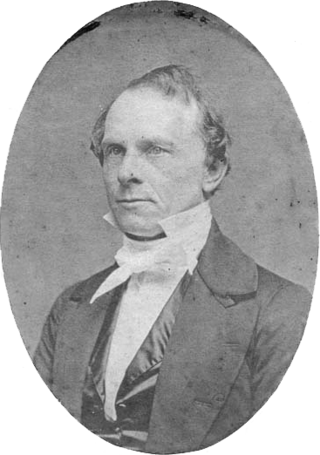
Ajmer-Merwara was a former province of British India in the historical Ajmer region. The territory was ceded to the British by Daulat Rao Sindhia by a treaty on 25 June 1818. It was under the Bengal Presidency until 1861 when it became part of the North-Western Provinces. Finally on 1 April 1871, it became a separate province as Ajmer-Merwara-Kekri. It became a part of independent India on 15 August 1947 when the British left India.

Edward Venables-Vernon-Harcourt was a Church of England bishop. He was the Bishop of Carlisle from 1791 to 1807 and then the Archbishop of York until his death.

John Arbuthnott, 8th Viscount of Arbuthnott DL FRSE was a Scottish peer and soldier. Known as "the rich Lord" he built the bridge in front of Arbuthnott House, Kincardineshire. He was the first member of the family who consistently spelled his name "Arbuthnott" rather than "Arbuthnot".
Albert E. Cowdrey was an American author who wrote nonfictional historical studies and fantasy and science fiction literature. He was educated in Tulane University and Johns Hopkins University universities and worked for twenty-five years as a military historian, mostly in and around Washington, D.C. As a Chief of the Special History Branch in the U.S. Army, he wrote a number of books about the history of the medical branches of the army. He published the science fiction novel Crux and more than fifty short stories. Much of his short fiction has appeared in Fantasy and Science Fiction and centered on his love for New Orleans, where he was born and raised. He is the only writer to receive awards from both the American Historical Association and the World Fantasy Convention.

Thomas Foley, 3rd Baron Foley PC, DL, was a British peer and Whig politician. He served as Captain of the Honourable Corps of Gentlemen Pensioners under Lord Grey between 1830 and 1833.
Joseph Wharton was a successful American merchant, and the owner of "Walnut Grove," a country place on Fifth street, near Washington Avenue, Philadelphia, in which the Mischianza of 1778 was held. The house was the finest of its day near that city. It was torn down in 1862, to make room for a schoolhouse. He was called "Duke Wharton", because of his stately bearing.
Max Meth was an Austrian-American Broadway musical director and conductor for over 40 years (1927–1968). He came to the United States from Austria. He won the Tony Award twice, in 1949 for the original As the Girls Go, and in 1952 for a revival of Pal Joey.

Combat Logistics Regiment 27 is a logistics regiment based at Marine Corps Base Camp Lejeune, North Carolina and falls under the command of the 2nd Marine Logistics Group and the II Marine Expeditionary Force, United States Marine Corps.

The United States Air Force's 269th Combat Communications Squadron is an Ohio Air National Guard combat communications unit located at Springfield Air National Guard Base, Ohio.

Beryl's Lot is a British comedy drama about a woman approaching middle-age and embarking on a programme of personal development. It was written by Kevin Laffan, produced by David Cunliffe and Peter Willes, and directed by Derek Bennett and David Reynolds for Yorkshire Television and broadcast on ITV between 1973 and 1977. Beryl's Lot ran for 3 series and 52 episodes in total before its cancellation. The first two series each consisted of 13 one-hour-long episodes, the third series of 26 episodes of 30 minutes.
This is a listing of all of Igor Stravinsky's commercially released studio recordings as a conductor or as a pianist; it also includes recordings conducted by Robert Craft "under the supervision of the composer." Works are arranged in chronological order by date of composition.
Baxter Hall (1757–1842) was a military officer in the Continental Army, and a militia captain, of significance to the American Revolution.
The High Sheriff of Cavan was the British Crown's judicial representative in County Cavan, Ireland from the 16th century until 1922, when the office was abolished in the new Free State and replaced by the office of Cavan County Sheriff. The sheriff had judicial, electoral, ceremonial and administrative functions and executed High Court Writs. In 1908, an Order in Council made the Lord-Lieutenant the Sovereign's prime representative in a county and reduced the High Sheriff's precedence. However the sheriff retained his responsibilities for the preservation of law and order in the county. The usual procedure for appointing the sheriff from 1660 onwards was that three persons were nominated at the beginning of each year from the county and the Lord Lieutenant then appointed one of the nominees as his choice of High Sheriff for the remainder of the year. Often the other nominees were appointed as under-sheriffs. Sometimes a sheriff did not fulfil his entire term through death or other event and another sheriff was then appointed for the remainder of the year. The dates given hereunder are the dates of appointment. All addresses are in County Cavan unless stated otherwise.

Sir John Lawrence was an English merchant who was Lord Mayor of London from 1664 to 1665. He was therefore Lord Mayor during the period of the Great Plague of London.

Dewas Senior was established by Tukoji Rao I Pawar during the Maratha conquest of Central India. It was a 15 Gun Salute Maratha princely state. On 12 December 1818 it became a British protectorate.

Paleontology in Massachusetts refers to paleontological research occurring within or conducted by people from the U.S. state of Massachusetts. The fossil record of Massachusetts is very similar to that of neighboring Connecticut. During the early part of the Paleozoic era, Massachusetts was covered by a warm shallow sea, where brachiopods and trilobites would come to live. No Carboniferous or Permian fossils are known from the state. During the Cretaceous period the area now occupied by the Elizabeth Islands and Martha's Vineyard were a coastal plain vegetated by flowers and pine trees at the edge of a shallow sea. No rocks are known of Paleogene or early Neogene age in the state, but during the Pleistocene evidence indicates that the state was subject to glacial activity and home to mastodons. The local fossil theropod footprints of Massachusetts may have been at least a partial inspiration for the Tuscarora legend of the Mosquito Monster or Great Mosquito in New York. Local fossils had already caught the attention of scientists by 1802 when dinosaur footprints were discovered in the state. Other notable discoveries include some of the first known fossil of primitive sauropodomorphs and Podokesaurus. Dinosaur tracks are the Massachusetts state fossil.

Lewis Falley Allen was an American farmer, businessman and politician. Allen was the uncle-in-law of President Grover Cleveland and is credited with introducing Cleveland to the practice of law and politics, therefore paving the way for his eventual presidency.

The Smart Set Anthology is an anthology of selections from The Smart Set literary magazine, edited by Burton Rascoe and Groff Conklin. It was first published in hardcover by Reynal & Hitchcock in 1934, and reprinted as The Smart Set Anthology of World Famous Authors by Halcyon House in the same year. It was reissued by Grayson as The Bachelor's Companion in 1944. The book has the distinction of being the first anthology with which Conklin was involved in an editorial capacity; he went on to become a prolific anthologist, mostly of science fiction.

Richard Falley Cleveland was an American Congregationalist and Presbyterian minister. A graduate of Yale College and Princeton Theological Seminary, Cleveland spent most of his life as a pastor, outside of a brief period as a district secretary for the American Home Missionary Society. He was the father of Grover Cleveland, who served as President of the United States twice.












